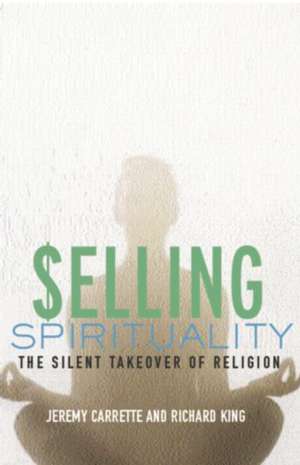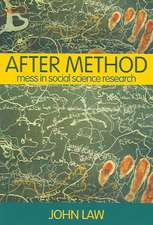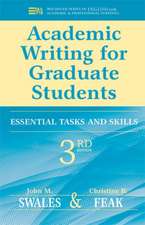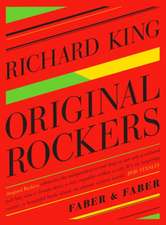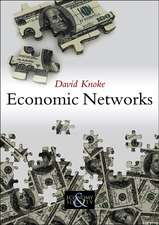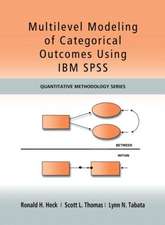Selling Spirituality: The Silent Takeover of Religion
Autor Jeremy Carrette, Richard Kingen Limba Engleză Paperback – 16 sep 2004
Selling Spirituality is a short, sharp, attack on this fallacy. It shows how spirituality has in fact become a powerful commodity in the global marketplace - a cultural addiction that reflects orthodox politics, curbs self-expression and colonizes Eastern beliefs.
Exposing how spirituality has today come to embody the privatization of religion in the modern West, Jeremy Carrette and Richard King reveal the people and brands who profit from this corporate hijack, and explore how spirituality can be reclaimed as a means of resistance to capitalism and its deceptions.
| Toate formatele și edițiile | Preț | Express |
|---|---|---|
| Paperback (1) | 283.62 lei 3-5 săpt. | |
| Taylor & Francis – 16 sep 2004 | 283.62 lei 3-5 săpt. | |
| Hardback (1) | 997.11 lei 6-8 săpt. | |
| Taylor & Francis – 16 sep 2004 | 997.11 lei 6-8 săpt. |
Preț: 283.62 lei
Nou
Puncte Express: 425
Preț estimativ în valută:
54.28€ • 58.94$ • 45.59£
54.28€ • 58.94$ • 45.59£
Carte disponibilă
Livrare economică 02-16 aprilie
Preluare comenzi: 021 569.72.76
Specificații
ISBN-13: 9780415302098
ISBN-10: 0415302099
Pagini: 208
Ilustrații: 1
Dimensiuni: 138 x 216 x 15 mm
Greutate: 0.29 kg
Ediția:New.
Editura: Taylor & Francis
Colecția Routledge
Locul publicării:Oxford, United Kingdom
ISBN-10: 0415302099
Pagini: 208
Ilustrații: 1
Dimensiuni: 138 x 216 x 15 mm
Greutate: 0.29 kg
Ediția:New.
Editura: Taylor & Francis
Colecția Routledge
Locul publicării:Oxford, United Kingdom
Public țintă
General, Postgraduate, and UndergraduateNotă biografică
Jeremy Carrette teaches Religious Studies at the University of Kent, Canterbury. He is author of Foucault and Religion (Routledge, 2000) and editor of Michel Foucault and Religious Experience (2003), and has also co-edited the Routledge Centenary Edition of William James's The Varieties of Religious Experience (2002). Richard King is a Professor in the Department of Theology and Religious Studies at Liverpool Hope University. He is author of Orientalism and Religion (Routledge ,1999), Indian Philosophy: An Introduction to Hindu and Buddhist Thought (1999) and Early Advaita Vedanta and Buddhism (1995).
Recenzii
'Selling Spirituality acknowledges that contemporary business ethics include a dimension of social responsibility ... In effect, the market has become God. As Rowan Williams, the Archbishop of Canterbury, said in his Richard Dimbleby Lecture in 2002: "The very survival of the public sphere, a realm of political argument about vision and education, is going to demand that we take religion a good deal more seriously." Carrette and King show how true this is.' - New Statesman
'In sum, Selling Spirituality offers a provocative thesis ... ' - British Association for the Study of Religions
'The scholarship behind the book is carefully researched and well documented.' - Zadok
'Jeremy Carrette and Richard King break completely new ground... [They] direct our attention to potentially fruitful areas of more systematic investigation [and] illustrate the importance of contemporary religion as a research subject.' - Nordic Journal of Comparative Religion
"Clearly written, passionate, and polemical, this book is sure to spark debate in the college classroom."
--Diane Jonte-Pace, Santa Clara University, Religious Studies Review
'This book is a long-needed, highly insightful critique of the spiritual supermarket, site of the prostitution of spirituality for personal profit and corporate gain. Jeremy Carrette and Richard King have provided a powerful indictment of the corporate exploitation of 'the spiritual,' using advertising and the media to distort the ethical and philosophical teachings of the world religious traditions to buttress their control of the minds of the people they wish to dominate as their loyal consumers. Serious students and teachers of spiritual thought or practice are well-advised to cultivate their self-critical alertness and hone their critical insight with the help of this hard-edged and illuminating book.' – Robert Thurman, Columbia University, USA
'In sum, Selling Spirituality offers a provocative thesis ... ' - British Association for the Study of Religions
'The scholarship behind the book is carefully researched and well documented.' - Zadok
'Jeremy Carrette and Richard King break completely new ground... [They] direct our attention to potentially fruitful areas of more systematic investigation [and] illustrate the importance of contemporary religion as a research subject.' - Nordic Journal of Comparative Religion
"Clearly written, passionate, and polemical, this book is sure to spark debate in the college classroom."
--Diane Jonte-Pace, Santa Clara University, Religious Studies Review
'This book is a long-needed, highly insightful critique of the spiritual supermarket, site of the prostitution of spirituality for personal profit and corporate gain. Jeremy Carrette and Richard King have provided a powerful indictment of the corporate exploitation of 'the spiritual,' using advertising and the media to distort the ethical and philosophical teachings of the world religious traditions to buttress their control of the minds of the people they wish to dominate as their loyal consumers. Serious students and teachers of spiritual thought or practice are well-advised to cultivate their self-critical alertness and hone their critical insight with the help of this hard-edged and illuminating book.' – Robert Thurman, Columbia University, USA
Cuprins
Acknowledgements Introduction: Spirituality and the Re-Branding of Religion 1. A Brief History of Spirituality 2. Western Psychology and the Politics of Spirituality 3. Spirituality and the Privatisation of Asian Wisdom Traditions 4. Selling the Soul: The Business of Spirituality Conclusion: Spirituality and Resistance Challenging the Corporate Takeover
Descriere
Selling Spirituality shows how spirituality today functions as a powerful commodity in the global marketplace, promising to soothe away the ills of modern life whilst functioning as a silent form of economic, cultural and political restraint.
